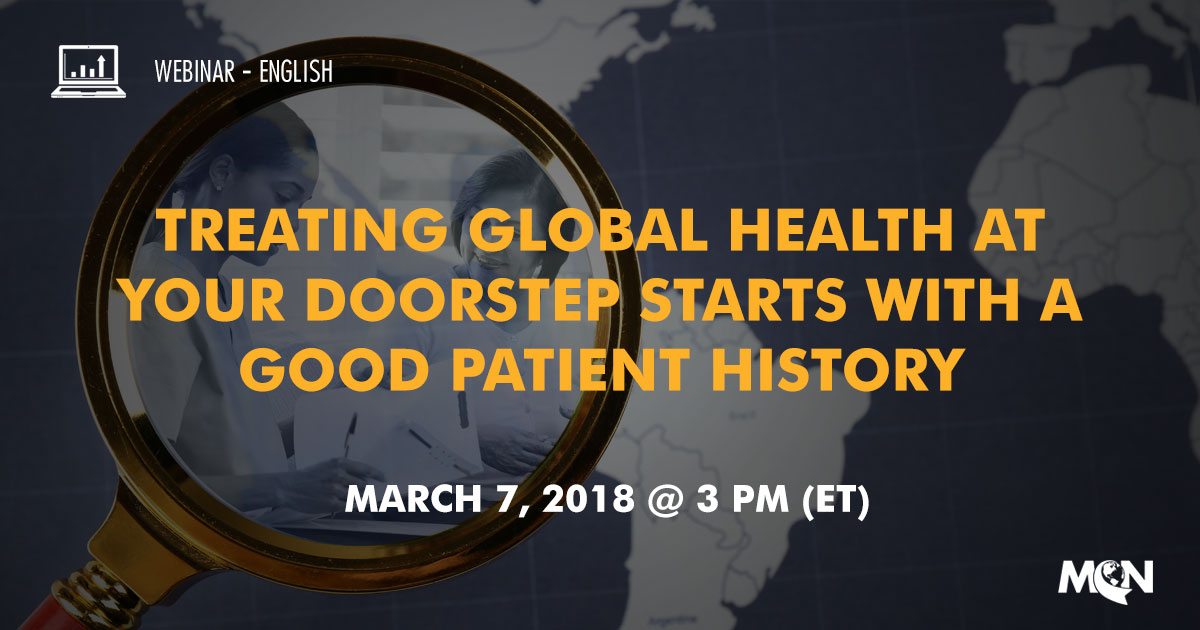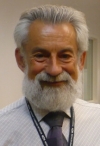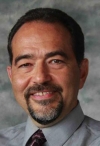
Technology is a vital part of our society. It has been critical in the advancement of medicine; however, in some cases there is an overdependence by clinicians on diagnostic technology which may impede a fuller understanding of the circumstances of patients in the exam room. The most potent, cost-effective, and accurate diagnostic tool that we have even in our advanced age of technology remains an accurate and comprehensive linguistically and culturally appropriate patient history. In this webinar, Dr. Ed Zuroweste and Dr. Laszlo Madaras, who collectively have over 50 years of practice in primary care, ask the question, “Has it become so normal to ask for tests for the most basic assessments that part of the art of medicine is being lost?” The presenters will explore the value of taking a culturally and linguistically appropriate history from the patient together with a thorough – and focused – physical exam. Spending a few minutes with the patient asking open-ended questions may save time and money by: getting the correct diagnosis and treatment plan; preventing expensive, unnecessary, and potentially harmful tests; reducing the number of specialists who may not need to see the patient; and even possibly improving patient satisfaction. The session will look at the impact of global health conditions on primary care practice in the United States and describe what primary care clinics can do to more systematically prepare for emerging diseases. At the conclusion of the webinar, participants will be able to:
Watch the Webinar Recording
Download the Presentation Slides
- Describe how lessons learned from recent health crises such as Ebola, Zika, and newer emerging issues like post-disaster relief can influence health system policies to avoid future mistakes.
- Describe what primary care clinics in the United States can do to develop systems to identify, treat, and prevent infectious diseases.
- Discuss the impact of good history taking as a tool in the clinical diagnostic toolbox.
- Discuss strategies to effectively provide continuity of care to a mobile patient population.
Presenters

Edward
Zuroweste
MD
Migrant Clinicians Network
Ed Zuroweste, MD is the Founding Medical Director for Migrant Clinicians Network. He was present for the first official meeting of Migrant Clinicians Network in 1985 and has been consistently involved with the organization since that time. Dr. Zuroweste began his work with migrants as a partner in a private practice in Chambersburg, PA. He later became the Medical Director of Keystone Health Center, a large Migrant and Community Health Center in Chambersburg, Pennsylvania. While attending to his administrative responsibilities, Dr. Zuroweste also maintained a full-time clinical practice in family practice and obstetrics, including full hospital privileges in Pediatrics, Adult Medicine, and Obstetrics. In addition to his work with MCN, Dr. Zuroweste is an Assistant Professor of Medicine at Johns Hopkins School of Medicine where he directs an International Rural Health Elective in Honduras. Dr. Zuroweste is also the staff physician for seven County Health Department tuberculosis clinics, Pennsylvania Department of Health and he currently acts as the Tuberculosis Medical Consultant for the PA Dept. of Health; a Clinical Consultant for a separate consulting firm. Dr. Zuroweste has worked for the World Health Organization (WHO) on two separate short-term assignments; the first in 2009-2010 as a Special Medical Consultant during the H1N1 influenza pandemic, and in 2014 as a Special Medical Consultant with the Ebola Response Team in Guinea and Sierra Leone, West Africa. Dr. Zuroweste has also participated in three CDC/WHO sponsored screening programs for TB/Leprosy/DM twice in the Marshall Islands (Ebeye 2017 and Majuro 2018) and most recently in the Micronesia on the island of Chuuk in 2023. He has traveled extensively in Central America, especially Honduras and Guatemala both for teaching and pleasure. He has also traveled to Europe, South America, and the Caribbean. Dr. Zuroweste is married with three children. When not working, Dr. Zuroweste enjoys long distance running, listening to great music, great movies, and concerts, working out of doors, and traveling with family and friends to far-off locations.

Laszlo
Madaras
MD, MPH, FAAFP, SFHM
Chief Medical Officer
Migrant Clinicians Network
As the Chief Medical Officer for Migrant Clinicians Network, Laszlo Madaras, MD, MPH is responsible for the oversight of MCN clinical activities. He also serves as a subject matter expert for various health topics including emerging issues, farmworker health, and Tuberculosis. Over the last 30 years, in parts of Africa, Central America, South America, the Pacific Islands, and the United States, Dr. Madaras has served thousands for wide-ranging ailments, including newly emerging diseases.
Dr. Madaras arrived to in the United States as a Hungarian refugee in 1968 at the age of seven and eventually became a US citizen. Dr. Madaras received his MD and MPH from Tufts University School of Medicine in 1993. Early experiences include working as an Albert Schweitzer Fellow in pediatrics in Gabon, West Africa; as a Peace Corps volunteer in the Congo; and as a pesticide review manager at the US Environmental Protection Agency. He worked on the Congo/Rwandan border during the 1994 Rwandan genocide, and on the Hungarian border with the former Yugoslavia in 1995.
Since 1996, Dr. Madaras has been a board-certified family physician in both inpatient and outpatient medicine in Pediatrics, Adult Medicine, and Obstetrics. He served as a frontline clinician at the Keystone Health Center where he cared for farmworkers and their families and became Assistant Medical Director from 2001 to 2005. In 2005, he became a hospitalist in Chambersburg and Waynesboro Hospitals in south central Pennsylvania, where he continues to work part time. In 2016, he became a Senior Fellow of Hospital Medicine. In 2020, he became a Fellow of the American Academy of Family Physicians.
In addition, Dr. Madaras has worked as a staff physician in Tuberculosis control at the Pennsylvania State Health Department since 2012, and regularly teaches US-based medical students on an international health rotation in Honduras. Dr. Madaras also teaches hospital medicine to Penn State nurse practitioner and physician assistant students and medical residents at Summit Health.
This project is supported by the Health Resources and Services Administration (HRSA) of the U.S. Department of Health and Human Services (HHS) under cooperative agreement number U30CS09742, Technical Assistance to Community and Migrant Health Centers and Homeless for $1,094,709.00 with 0% of the total NCA project financed with non-federal sources. This information or content and conclusions are those of the author and should not be construed as the official position or policy of, nor should any endorsements be inferred by HRSA, HHS or the U.S. Government.
Continuing Education Credit (CEU)
To receive CME* or CNE credit after viewing this webinar, you must:
- Complete the Participant Evaluation associated with this webinar
- Send an email with your first and last name stating which webinar you completed to contedu@migrantclinician.org